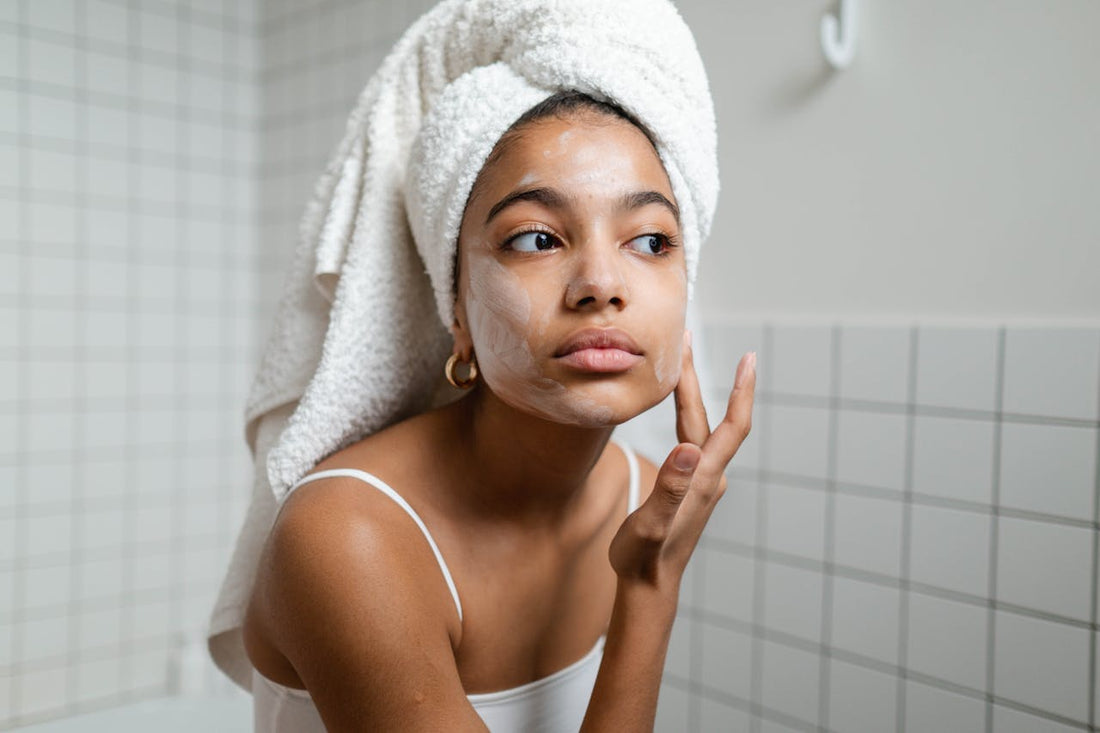
Winter Skincare Tips: How to Prevent Dryness While Using Actives
Share
Winter brings chilly winds, low humidity, and indoor heating, all of which can disturb your skin of moisture. If you’re using active ingredients like tretinoin, retinol, or AHAs during this season, it’s vital to tweak your skincare routine to prevent dryness and irritation. These active ingredients are powerful tools for combating acne, signs of aging, and uneven skin tone, but they can also exacerbate dryness if not managed properly. Here’s a comprehensive guide to keeping your skin hydrated and healthy while reaping the benefits of actives.
Understand Your Skin’s Needs in Winter
During winter, your skin’s barrier function is more prone to damage. Cold air and wind strip away natural oils, while indoor heating further dehydrates the skin. This makes it essential to focus on hydration and repair. If you’re using actives like tretinoin or glycolic acid, they can intensify dryness and lead to flaking or irritation. The key is to balance the use of actives with nourishing products that support your skin’s moisture barrier.
Tips for Preventing Dryness While Using Actives
1. Switch to a Gentle Cleanser
Harsh cleansers can disrupt your skin’s natural barrier, leaving it vulnerable to dryness. Opt for a gentle, hydrating cleanser that removes impurities without stripping essential oils. Look for ingredients like glycerin or ceramides to maintain hydration. Avoid foaming cleansers that can be overly drying during winter.
2. Layer Your Moisturizers Strategically
Moisturizing is crucial, especially when using actives. Start with a lightweight hydrating serum containing hyaluronic acid to draw moisture into the skin. For extra protection, consider using an occlusive layer like petroleum jelly or a ceramide-rich balm at night.
3. Adjust the Frequency of Actives
Using actives daily may not be suitable during winter. Scale back their use to every other day or even twice a week, depending on your skin’s tolerance. This allows your skin to recover and reduces the risk of over-drying or irritation.
4. Incorporate Barrier Repair Ingredients
Ingredients like ceramides, niacinamide, and peptides help strengthen your skin’s natural barrier. These ingredients can counteract the potential dryness and irritation caused by actives. Consider adding a barrier-repairing serum or moisturizer to your routine.
5. Don’t Skip Sunscreen
Even though the sun may feel weaker in winter, UV rays can still cause damage. Retinol can make your skin more sensitive to sunlight. Use a broad-spectrum sunscreen with SPF 30 or higher to protect your skin and stop from further moisture loss.
Modify Your Skincare Routine for Winter
Morning Routine:
- Cleanse: Use a gentle, hydrating cleanser.
- Hydrate: Apply a hyaluronic acid serum.
- Moisturize: Use a rich moisturizer with ceramides or peptides.
- Protect: Finish with a broad-spectrum sunscreen.
Evening Routine:
- Cleanse: Double cleanse if needed, starting with a gentle oil-based cleanser.
- Actives: Apply your active ingredient (retinol, tretinoin, or AHA) sparingly.
- Moisturize: Layer with a hydrating cream.
- Seal: Use an occlusive balm to lock in moisture.
Additional Winter Skincare Tips
1. Invest in a Humidifier
Indoor heating can drastically lower humidity levels, leading to dehydrated skin. A humidifier helps maintain moisture in the air, benefiting both your skin and respiratory health.
2. Avoid Over-Exfoliating
While exfoliation is essential to remove dead skin cells, overdoing it can worsen dryness and compromise your skin barrier. Stick to mild exfoliation once a week during winter.
3. Stay Hydrated and Eat Skin-Friendly Foods
Drink plenty of water and incorporate omega-3 fatty acids into your diet to nourish your skin from within. Foods like avocados, salmon, walnuts are excellent choices.
4. Use Overnight Masks
Overnight hydrating masks can provide an extra boost of moisture while you sleep. Look for masks with ingredients like shea butter, or aloe vera.
Actives-Specific Advice
Tretinoin and Retinol:
- Use little amount and apply it on completely dry skin to minimize irritation.
- Buffer with a moisturizer by applying it before and after tretinoin or retinol.
AHAs and BHAs:
- Limit their use to 1-2 times a week during winter.
- Follow up with a soothing moisturizer to prevent over-drying.
Vitamin C:
- Pair with a hydrating serum to enhance absorption and hydration.
- Use it in the morning under sunscreen for maximum protection.
Conclusion
Winter skincare doesn’t mean giving up on actives; it’s about adjusting your routine to suit the season’s challenges. By focusing on hydration, barrier repair, and gentle care, you can maintain radiant, healthy skin even during the harshest months. Remember, consistency is key—listen to your skin’s needs and adapt accordingly. With the right approach, you can enjoy the benefits of active ingredients without compromising your skin’s hydration and health.
